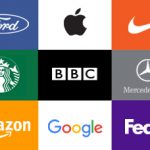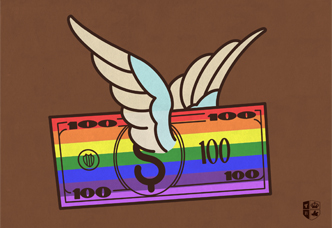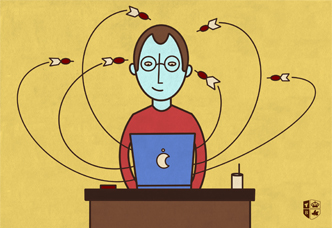Campaign Crush: OkCupid is DTF
If you’d asked me a few weeks ago if I was interested in anything OkCupid had to offer, I’d answer with a resounding “no.” I’m definitely not the online dating expert of the office and based on my limited experience and the stories of friends and acquaintances, the results of online dating tend to range from downright horrible to “meh.”
That’s why OkCupid completely surprised and delighted me with the release of their new campaign. The campaign uses bright, fun, sometimes slightly surreal photographs and prominently features the acronym “DTF”, making these ads provocative and hard to ignore. The best part? OkCupid reimagines that F word with new phrases that change the meaning to refreshing alternatives such as “down to feel fabulous” or “down to flea market.”
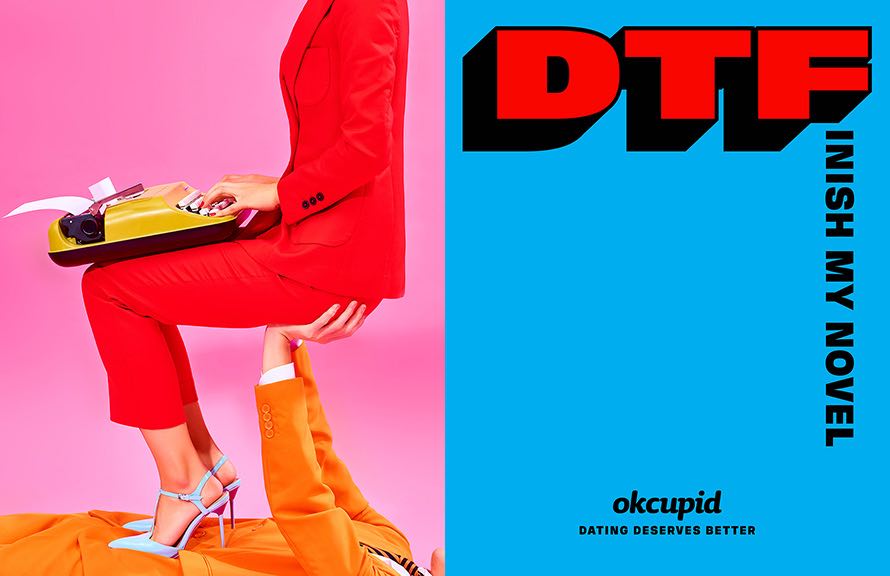
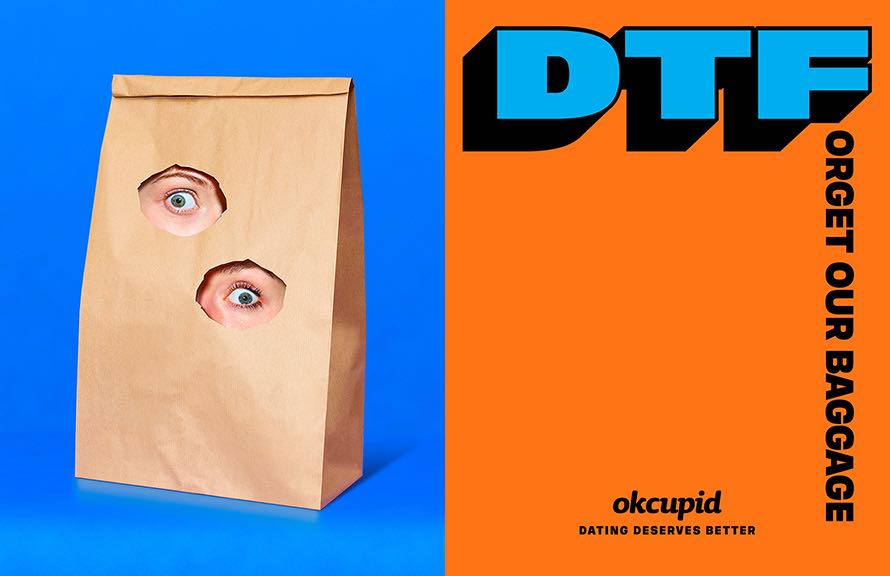
In the official OkCupid blog, they explain the motivation for the campaign saying, “something has to change, because the problem with phrases like DTF is that too many people, especially women, don’t appreciate the question or the context. In a recent poll of 60,000 OkCupid users, nearly 80% of women said there’s too much emphasis on being DTF in dating today.” The campaign addresses this discontentment with the best hook-up apps with humor and fun. Capped off with the tagline, “Dating Deserves Better,” this campaign hits the nail on the head in terms of social awareness and carving out a distinctive voice for the brand.
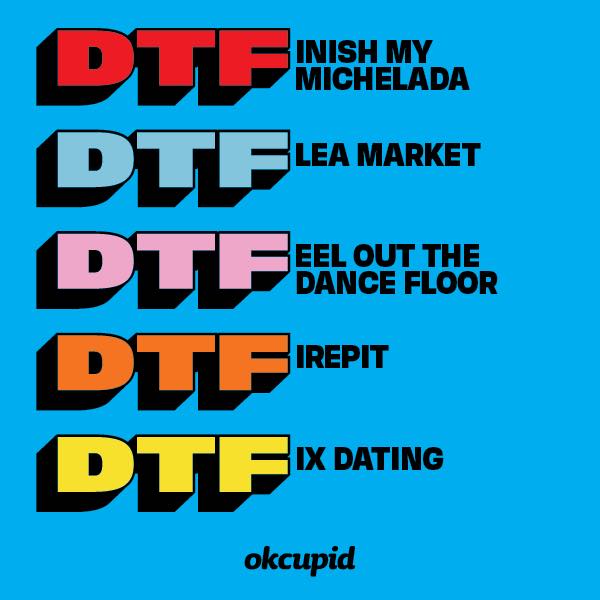
The campaign, done by Wieden + Kennedy, really takes a hard look at the pitfalls of dating today. Copywriter Ian Hart shares his perspective behind the campaign. “When we say dating deserves better, what we’re really saying is people who date deserve better. Because I mean, they really do. Modern dating treats emotions like a disposable commodity. Anyone who’s been single knows this. It’s an aspiration to treating people like people.”
Dating Activists
We’ve talked about how brands often use their influence to take on activist roles when it comes to major topics like human rights or immigration. However, brands haven’t taken up the cause of reforming the culture surrounding dating in the ‘swipe right or left’ era—until now, that is. OkCupid CMO Melissa Hobley recently shared the inspiration behind the campaign: “In the current political and social climate, we felt a responsibility and saw an opportunity to play a part in changing the conversation about dating culture and empowering each individual to reclaim the meaning of DTF and make it theirs.”
In my eyes, this type of empowerment is perfectly timed with the current national conversations about equality, sexual assault and harrassment. Hobley mentions this as well, stating that she feels the campaign will resonate with women who are “aware that the phrase DTF was used historically in a negative way. There’s power in taking that back and making it yours.” Without making a blatant statement on the subject, OkCupid has made their stance known loud and clear.
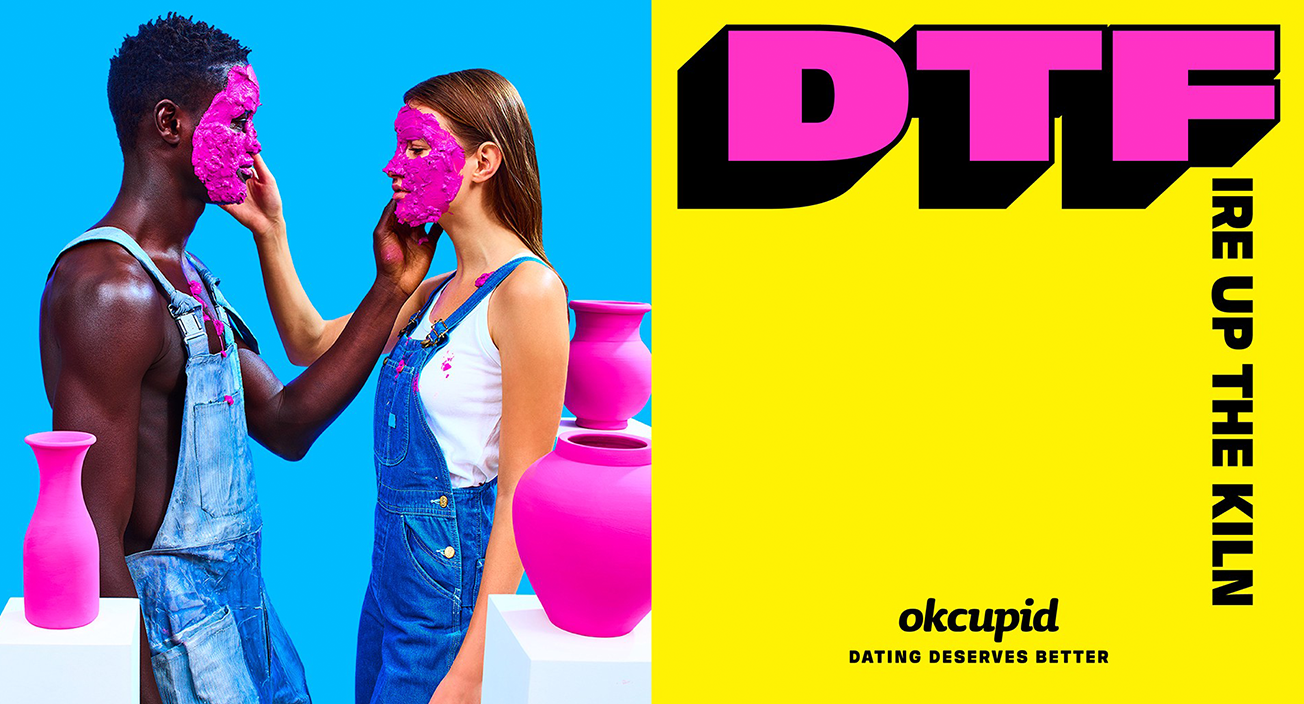
More Than a Campaign
Their quest to bring back some substance to dating isn’t a one-off concept for this campaign. OkCupid has leaned into the idea that people want to be their true selves when dating and incorporated it into their brand footprint. In their blog about the campaign, they position themselves as “… the dating app that shows who you really are, beyond just a photo. You have stories to tell, and passions to share, and things to talk about that are more interesting than the weather.”
OkCupid has taken steps to make sure this philosophy extends to the actual app features as well. Rather than needing little else than a username and password to sign up, users are now required to answer real questions to build out a profile, rather than relying solely on location and looks. The app also now includes a tool to search for users by interest and passions “… to help you find dates who are looking for the same F that you are.”

With the user changes occurring within the last year and the campaign only just launching this month, the results of this shift are yet to be seen. It’s unlikely a single dating app can change an entire culture, but I do commend OkCupid for taking steps to call out the negativity and suggest action, all while carving out a very appealing voice for themselves. They’ve managed to tackle a cultural issue and bolster their own image along with it, which isn’t easy to do. If I ever find myself back in the dating game, I’ll be heading straight for OkCupid.
What are your thoughts on OkCupid’s newest campaign? Does this shift set them apart in the landscape of online dating brands? If this campaign compels you to give online dating another shot, let us know in the comments below!
These Are a Few of My Favorite Things
Instagrammable Pop-Up Events | A 29Rooms Review
Uber's Constant Rebranding Won't Fix Neglected Company Culture
